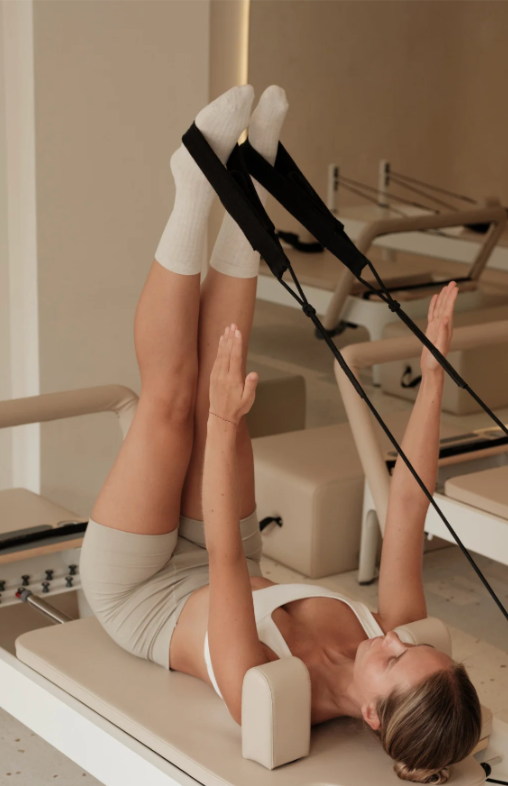Top Questions About Postnatal Pilates Answered by a Clinical Physiotherapist
- PhysioMatters

- Aug 8
- 3 min read
"PhysioMatters - Helping Women Move Well, Feel Strong, and Thrive."
After pregnancy and birth, many mums are eager to rebuild strength, improve posture, and reconnect with their bodies. That’s where Postnatal Pilates comes in but you might have a few questions before starting.
At PhysioMatters, we work with new mums every day, and we’ve compiled the most common questions we hear in the clinic. Here's what you need to know, straight from our Women’s Health Physiotherapists.
1. When Can I Start Postnatal Pilates?
For most women, it’s safe to start gentle Pilates once you’ve had your postnatal check-up at around 6 weeks postpartum.However, recovery looks different for everyone.
At PhysioMatters, we begin with a comprehensive postnatal assessment to check your abdominal wall, pelvic floor, posture, and any ongoing symptoms. This helps us personalise the timing and type of exercise that’s right for you.
2. What Are the Benefits of Postnatal Pilates?

Postnatal Pilates helps you:
Rebuild core strength and reduce abdominal separation (diastasis recti)
Improve pelvic floor awareness and bladder control
Ease back, neck, or pelvic pain
Support posture and movement confidence
Boost energy, sleep, and overall wellbeing
3. Can I Do Pilates if I Have Diastasis Recti or Pelvic Floor Issues?
Yes and you should. In fact, Pilates is one of the safest, most effective ways to manage these concerns when guided by a trained professional.
Our physiotherapists use real-time ultrasound and clinical screening to assess how your muscles are functioning. Then we guide you through movements that promote healing without increasing pressure on the abdomen or pelvic floor.
4. Will It Help Me Get Back to the Gym or Running?
Absolutely, however, think of Pilates as your foundation.
If your long-term goal is to return to high-impact exercise or strength training, we will use Pilates alongside progressive rehab and load management to get you there safely.
We support clients transitioning from Pilates to heavier weights, running, or sport-specific movement with individualised care because your body deserves it.
5. What’s the Difference Between Regular and Clinical Pilates?
Regular Pilates (like group mat classes) may be generalised and not tailored to your stage of recovery. Clinical Pilates is led by a Physiotherapist who has:
Specialist knowledge of postnatal recovery
Skills to adapt each exercise to your body’s needs
The ability to screen for red flags or injury risks
Tools like Real-Time Ultrasound to guide muscle engagement
This means your sessions are safe, evidence-based, and adjusted session by session, especially important when your body is still healing.
6. Do I Need to Be Fit to Start Postnatal Pilates?
Not at all! Pilates meets you where you are. Whether you’re dealing with pain, have never exercised before, or are an experienced athlete, we’ll tailor the programme to your energy levels and goals.
And because we work 1-to-1, you’ll get guidance every step of the way.
Final Thoughts: Postnatal Pilates with a Purpose
Postnatal Pilates isn’t just about flat abs or ‘bouncing back’. It’s about rebuilding from the inside out, supporting your mental and physical wellbeing, and helping you feel strong and confident again on your own terms.
Book a Postnatal Assessment Today
Start with a 1-to-1 session with one of our experienced Women’s Health Physiotherapists. We’ll check your pelvic floor, core, and guide you on the safest and most effective way forward. Book today!
Cheers
Danielle, Xan & Claire - PhysioMatters Singapore
Contact Information
Email: hello@physiomatters.com.sg
Phone: +65 9352 9067
Address: 360 Orchard Road #10-07 International Building, 238869









Comments